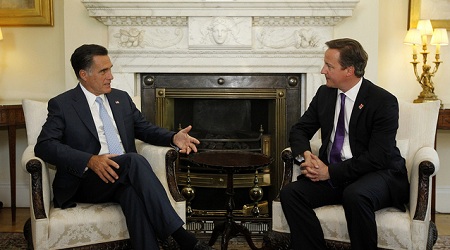UK prime minister David Cameron announced his first major cabinet reshuffle Tuesday since taking office in May 2010.![]()
As predicted, justice minister Kenneth Clarke was demoted to ‘minister without portfolio,’ marking what will likely be the end of front-bench politics for the ‘big beast’ of Tory — and British — politics, and for his thoughtful take on prison reform. He’ll be replaced by the far more right-wing (and non-lawyer) Chris Grayling, an up and coming figure on the Tory right, who had previously served as employment minister. From The Guardian:
Grayling’s appointment also signals a determination by Cameron to take a tougher line on sentencing, the Human Rights Act, legal aid and community punishment, a nexus of policy issues that has left Conservative backbenchers frustrated by what they regarded as Clarke’s willingness to pander to Lib Dem opinion.
Lady Sayeeda Warsi, the only Muslim in the cabinet and a one-time rising Tory moderate star, was also demoted, from co-chair of the party to senior minister of state at the Foreign Office.
Cameron’s reshuffle among junior ministerial offices was much more thoroughgoing, and also marks a significant swing to the right — and a swing to a cabinet that is ‘more male, white, southern and Oxbrigdge’. The net effect will be to isolate further deputy prime minister Nick Clegg, the leader of the Liberal Democrats. Chancellor George Osborne will keep his job, meaning that there’s no shift from the budget austerity upon which Cameron has staked his government’s legacy.




